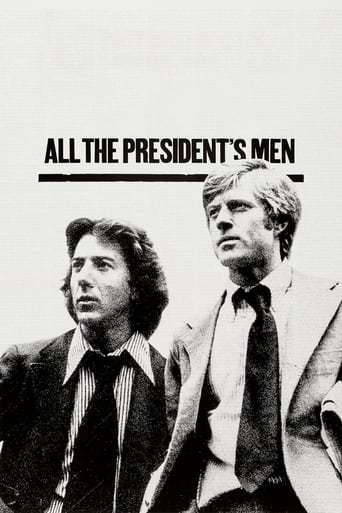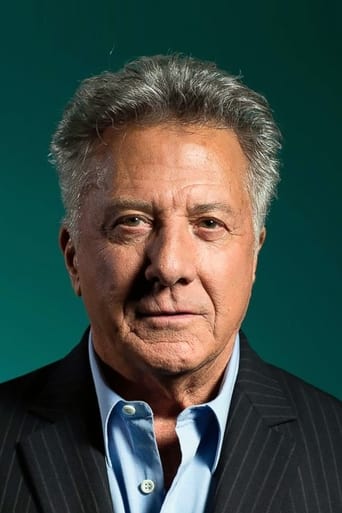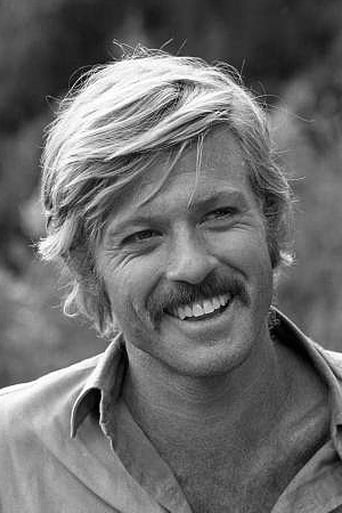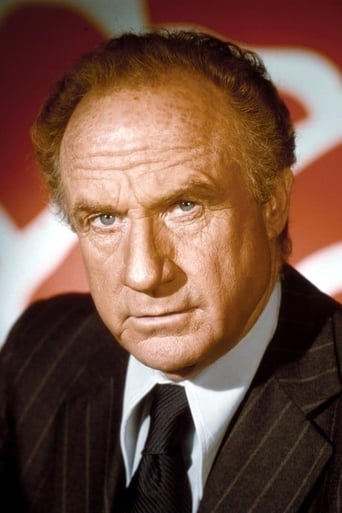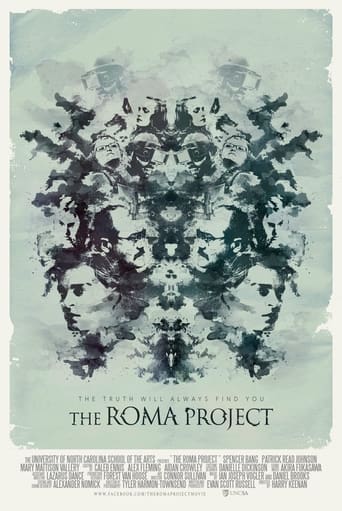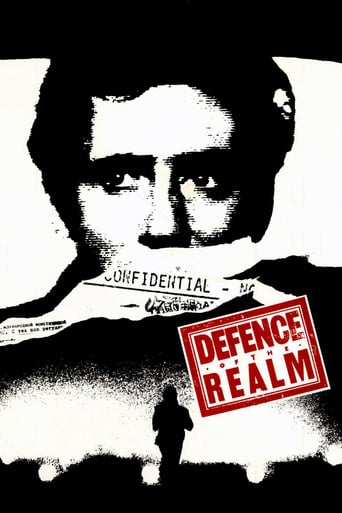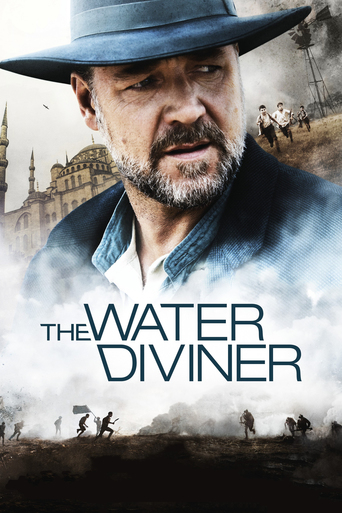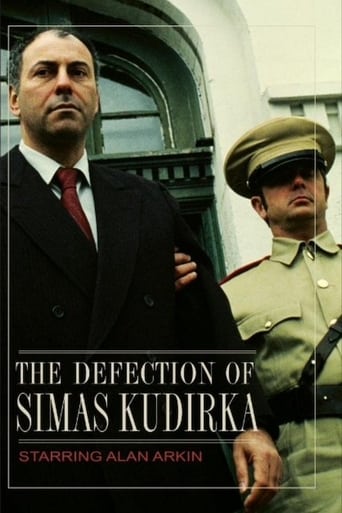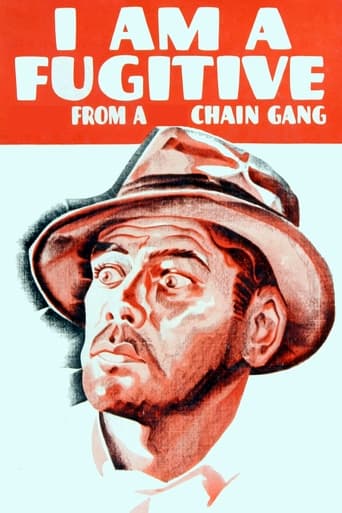All the President's Men (1976)
During the 1972 elections, two reporters' investigation sheds light on the controversial Watergate scandal that compels President Nixon to resign from his post.
Watch Trailer
Cast
Similar titles
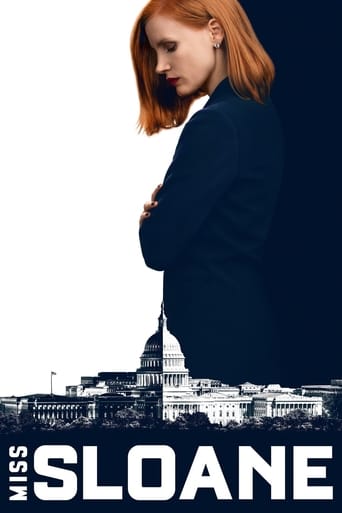
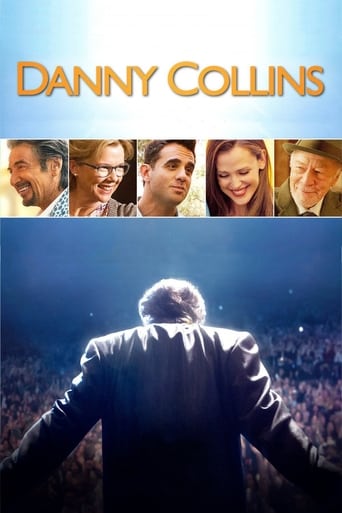

Reviews
I love this movie so much
everything you have heard about this movie is true.
An Exercise In Nonsense
All of these films share one commonality, that being a kind of emotional center that humanizes a cast of monsters.
"All the President's Men" (1976) follows the investigation led by Washington Post journalists Bob Woodward (Robert Redford) and Carl Bernstein (Dustin Hoffman) on the Watergate scandal, running parallel with President Nixon's campaign for reelection. As the two lead characters see their investigation unfold, hardly, must I say, they get banged down by your usual, but not quite so, "newspaper" drama : missing sources, pettiness of the story, abstinence and denial by the witnesses, lack of hard evidence and, above all, threat to the survival of the Post itself.This is a gripping time piece. Almost half of the story is spent at the newspaper's offices, overshadowed by the permanent key-tapping of ardent typewriters and the constant chatter of young secretaries, which add a great sense of urgency and authenticity to a typical 1970s Washington workplace, where Woodward and Bernstein, sitting face-to-face in an odd, diagonal line that becomes a subtle symbol for a head-butting professional relationship, learn to first tolerate each other (and each other's egos) before uniting to unveil the truth. The interactions between Hoffman and Redford throughout the movie are as delightful to watch as they are crucial to making William Goldman's Academy Award-winning script reach its climax. We, as spectators, pay attention to these two very powerful actors' every word with such care and eagerness without even seeing through their banter and mistakes, breathing sighs of relief when catching a loose second and setting the alarm as the next one arrives. In the meantime, we get glimpses of written notes swinging in every direction from Woodward, mainly, creating a true journalistic feel, and enthralling conversations over the phone from both characters, desperately attempting to connect with not only the people behind the scandal, but also with the obscure situation on which they vainly light their lamps on, to a point where the phone becomes a mere extension of the hand and the absence of voice on the other end of the wire provokes an expression of total indifference. The story hides behind this progressive and discreet line of events without ever declaring "right" or "wrong", and plays with the writers' heads, leading them to frustration, unaided by the pressure of their superiors, the Metro News' supervisor Harry Rosenfeld (Jack Warden) and the Post's Ben Bradlee (Jason Robards, in a sublime performance).The remainder of the movie explores Woodward and Bernstein's (or "Woodstein", as Bradlee once cries out, interrupting the high-pitched noise of the office for more than two seconds) attempts to force the truth (or, at least, parcels of it) out of various mouths (White House bookkeepers, attorneys, lawmen, you name it) and shows with true excitement the abusive paraphrasing and deduction the two men make with a less-than-minimal amount of words or simple nods from the speakers (or non-speakers). In fact, the two are so convinced of the story's credibility that they unequivocally trade sentences for common sense, really. This is where the movie falters; its will and urgency to depict these moments rapidly makes them seem trivial and forgettable. For instance, an "informant" of Woodward's ("Deep Throat", as they call him) only agrees to meet with him in a dark, underground parking, but the movie never truly gives his character the proper gravitas and importance that his name really bears, historically speaking.Nevertheless, "All the President's Men" is the prototype of a solid and honest depiction of a historical event or, in this case, a more or less extended period of time marked by historical events. Alan J. Pakula's camera is turning around America's capital with remarkable ease, giving us the feeling that we have already been there, with Woodward and Bernstein, and capturing the charm of residential homes, the cacophony of midnight streets and the peacefulness of everyday places, such as libraries and diners. As already mentioned, the dynamics of the characters and of their relationships elevate the movie way above average, but the thoroughness to get the story "just the right way" makes it even greater. At some points during the movie, we are projected with real-time speeches from Nixon and his entourage or with journalistic coverage from 1972 and 1973 on a small television set in the office, further down the road from Woodward's small cabinet. As we exchange glances from the coverage on TV to Woodward's continuous typing, we take a step back and contemplate the successful effort of converting the broadcasted story into a much more intimate one.
In today's world, "All the President's Men" is as timely as ever. And it's a great look at the importance of journalistic integrity at a time when it was important to be right, not first.A meticulously made film, and Redford and Hoffman were at the heights of their careers and both so adorable! The cast was perfect, with Hal Holbrook as Deep Throat, Jason Robards as Ben Bradlee, Jack Warden - all brilliant.The break-in, as we see, was a mess. In preparation for the break-in, someone had gone around the Democratic headquarters and put tape on all the doors so they wouldn't lock automatically. One of the first things you see is a guard finding one of the taped doors - that was the actual guard, and he was considered the hero of the night. One of the Republican plans was that during the convention, a yacht with prostitutes would be nearby; the Republicans would lure delegates onto the yacht and then blackmail them later. The interesting thing is how all of the people involved had no problem committing actual felonies - blackmail, embezzling, perjury, and one of the most powerful moments in the documentary is the TAPE of Nixon saying he knew where he could get a million in cash to pay people off. It was all like something out of The Sopranos, with John Mitchell threatening to put Katherine Graham's tit in a wringer if anything was published about him. Astonishing. And this was The White House.Woodward and Bernstein were like dogs with a bone, beautifully shown here as they continually pursue a story originally thought of as a waste, later called a witch hunt, and finally above-the-title news.I'm older now, obviously, than when Nixon resigned. It was hard for me to see him as a person then. Later on, transcribing his speeches and an interview - I realized that he was an amazing speaker, and his career had been absolutely brilliant. I pity him that he felt he had to do what he did. And then I remember his comments about Jews and artists on those tapes. A very complicated man who let his dark side take over.The film doesn't dwell on that, but on what Redford wanted - the mechanics of the investigation itself, the grunt work that went into getting the story.Some trivia: After this film, there was a large increase in the number of applicants to journalism schools. I'd like to point out that this took place after the movie - not the book.
"All the President's Men" may be more historically inaccurate than accurate but it sure details a depth of political corruption at the time seemed unfathomable. Doesn't mean one can actually do less these days though, but when people seem to be genuinely pleased that newspapers are indeed dying, what they are essentially saying is that one of major tools to monitor the proper workings of government is no longer necessary. Thus, corruption can continue unchecked, democracy eroded even further.When I first watched this film, that's over 20 years after it's release. I had no idea about any of the details of Watergate whatsoever. I mean, I was a mare child in some classy school in London.Over 30 years before that was, Richard Nixon, impeached for spying on and sabotaging his political rivals and it all came to light because a handful of burglars got caught breaking into National Democratic Headquarters, which were located in an apartment complex known as "Watergate". The story was revealed due to a couple of reporters at the Washington Post, Woodward and Bernstein. That's it, that's all I knew. I didn't even know Woodward and Bernstein's first names. Just the bare minimum (I mean, I think ANY American should know that much, no? But I'm 150% English. With added 50% of USA and rising? that's 200% from both worlds).Here's the thing though. It doesn't matter that you don't know who Bob Haldeman was, you'll figure out enough of what's going on via context, and then the rest of the movie will work its magic on you. By the time the credits roll you'll be saying, that was so awesome, even though you still couldn't tell me what John Ehrlichmans title was at the White House. I've explained the level of complexity in the story as way of illustrating all the challenges this movie overcomes. What winds up happening isn't that the complexity overwhelms the viewer the viewer picks up on the necessary elements and enjoys the movie, while the Watergate-knowledgeable viewer winds up having a film full of details and minutiae to cherish.How do they do it? By focusing on the excitement of it. The adventure. All the President's Men is a thriller, people!! This is the greatest detective story of all time. Woodward and Bernstein were on a quest for the truth, and the truth was being protected by the most powerful people on the planet, with the full force of the government behind them!Woodward and Bernstein slowly come together as a team, and then slowly come to realise exactly what they're dealing with. Their suspicion grows. Evidence mounts.But as the story builds, so does the pressure. The stakes. Other newspapers are racing them to find the truth and to break the story first. People are trying to discredit them. At one point, their editor, Ben Bradlee (portrayed by Jason Robards, who won an Academy Award for this role) tell them, Were under a lot of pressure, you know, and you put us there. Nothings riding on this except the, uh, first amendment to the Constitution, freedom of the press, and maybe the future of the country. Not that any of that matters, but if you guys f*ck up again, Im going to get mad. Goodnight.He wasn't exaggerating, either. Had the Nixon Whitehouse succeeded in blocking their investigation and remained in power, who knows what the consequences would have been for the press. It certainly wouldn't have boded well for the Washington Post, as Nixon most assuredly would have done everything in his power to bring them down."All the President's Men" is truer to the craft of journalism than to the art of storytelling, and that's its problem. The movie is as accurate about the processes used by investigative reporters as we have any right to expect, and yet process finally overwhelms narrative -- we're adrift in a sea of names, dates, telephone numbers, coincidences, lucky breaks, false leads, dogged footwork, denials, evasions, and sometimes even the truth. Just such thousands of details led up to Watergate and the Nixon resignation, yes, but the movie's more about the details than about their results.That's not to say the movie isn't good at accomplishing what it sets out to do. It provides the most observant study of working journalists we're ever likely to see in a feature film (Bob Woodward and Carl Bernstein may at last, merciful God, replace Hildy Johnson and Walter Burns as career models). And it succeeds brilliantly in suggesting the mixture of exhilaration, paranoia, self-doubt, and courage that permeated the Washington Post as its two young reporters went after a presidency.Newspaper movies always used to play up the excitement and ignore the boredom and the waiting. This one is all about the boredom and the waiting and the tireless digging; it depends on what we already know about Watergate to provide a level of excitement. And yet, given the fact that William Goldman's screenplay is almost all dialogue, almost exclusively a series of scenes of people talking (or not talking) to each other, director Alan J. Pakula has done a remarkable job of keeping the pace taut. Does History still repeats itself?
"All the President's Men" is about two journalists who try to uncover details from the Watergate scandal."All the President's Men" was brilliantly directed by Alan J. Pakula. He really did an amazing job at directing. He created a realistic movie. And he looked out for the details. When a character is further away from the camera, the voice of said character is way more quiet than the voice of someone standing right in front of the camera for example. Or when a plane flies by, and the characters have to yell, so the other one understands them. But the realism doesn't end there. He used some techniques to immerse you into the movie. An example of this is when the camera is focused on two different things at the same time. Mostly with the one thing being right in front of the camera and the other being in the background. The technique is not used a lot on today's standards, but directors like Quentin Tarrantino use it once in a while. But normally they choose to focus on two characters. In this movie Alan J. Pakula decided to make the camera focus on one character, but the other thing is completely random. Well, not completely random. The other thing was most of the time a distraction, to show how hard it is to concentrate at the given time. This only makes you feel like you are there right with the characters and it gives a very immersive feel to it. Another cool detail was the use of wide angle shots. This was used to make it feel like you were being watched, which fits the theme of the movie perfectly. He is also a very good visual director. Like I've just said, he uses a lot of wide shots. These shots were always beautifully composed. There were a couple of scenes I liked in particular. The scenes where Woodward goes to meet his informant. The use of lighting and color were on point. The wide shots looked stunning. But not only the wide shots. In the close ups the shadows were used creatively, which gave an amazing effect. Another scene that visually stood out to me was the scene in the elevator. The characters partially hidden in shadows made the shot look very good. These were just the ones that I personally found amazing to look at, but that's mostly because I very much like the use of shadow in scenes. Alan J. Pakula also used long takes in which the camera managed to capture every character in a beautiful way. You'd expect that, when the camera is moving, not all characters would be positioned in a good spot, but because of the brilliance of Alan J. Pakula, this is what happened. The pacing was also really good.Now that that's out of the way, let's go over to the actors. There were two protagonists in the story Bernstein and, the previous named Woodward. Woodward was played by Robert Redford. I think that this is his best performance that I've seen from him, even though the Oscars seem to disagree with me. He absolutely deserved an Oscar for this role. His dedication to the role payed of and he felt so natural. The same goes for his colleague, Dustin Hoffman. He too deserved an Oscar, or at least a nomination, for his natural performance. But these were just the main performances. The supporting cast was really good. The members of the CREEP really showed fear in their eyes and were very convincing.The screenplay was also fantastic. It was written with such care. The information that you needed to figure out everything was there, but just not told right in your face. The dialogues were realistic. First we see men talk things through, before something relevant to the plot happens. It doesn't go straight to the point as in your average movies. No, they take time to set the scene up. The dialogue is also intriguing and you want to know what the person is going to say next. I've read in the trivia section of IMDb that Hoffman and Redford learned each others lines so they could interrupt each other during a conversation. And they did. It paid of very well. this only made the movie getting more realistic. The characters were not developed in a way that they tell you: "oh his parents died". (This is not in the movie, just an example) In "All the President's Men", they do this in subtle ways. You can see immediately that Bernstein is a perfectionist and that Woodward is a realist. Their characters are developed by actions and subtle things, rather than someone with a big red arrow above their head yelling from the roof which character traits each character has. I've said that the screenplay was written with care, and with this I mean that they really watched out with what the characters said in which scene. If the character said something else, the scene would've lost it's power, which is not a good thing.If you don't get it: I love this movie. I would definitely recommend this movie. The acting and directing were absolutely on point. The attention for detail is remarkable and the writing is intriguing. This movie is going up on my favorite movie list. This movie get's a 10/10
